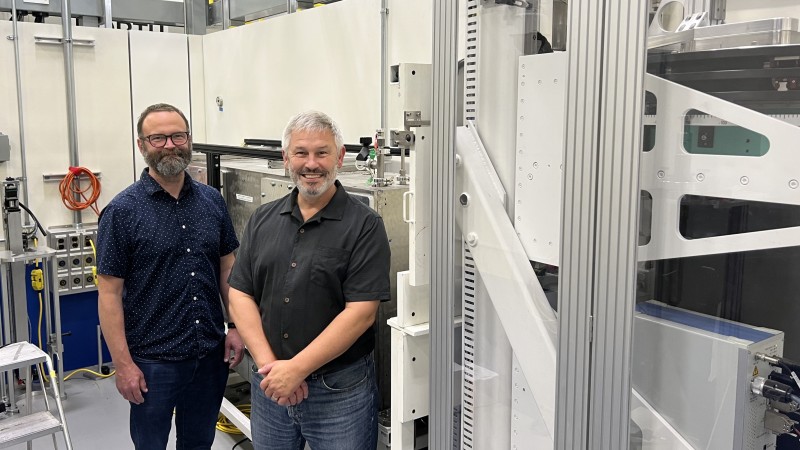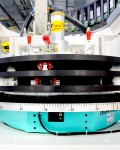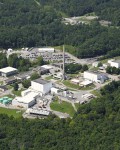The Department of Energy’s Office of Science has selected researchers from Neutron Sciences and two other Oak Ridge National Laboratory research teams to receive funding through DOE’s new Biopreparedness Research Virtual Environment, or BRaVE, initiative.
BRaVE, announced earlier this year, aims to build on biopreparedness research that delivered high-impact results in the fight against COVID-19. In the height of the pandemic, DOE national laboratory scientists combined fields such as biology, high-performance computing and manufacturing to bolster the national supply of personal protective equipment and improve virus testing and treatment.
“The advances made in this program will revolutionize our understanding of the science underlying a range of potential biological events and transform the nation’s ability to prepare for, and respond to, future biological threats,” said Asmeret Asefaw Berhe, Director of the DOE’s Office of Science. “Further, these advances will complement research efforts associated with other federal agencies and will be broadly applicable to understanding plant pathogens of crops that are central to DOE’s bioenergy program, as well as other biological systems.”
The initiative encourages continued collaboration across disciplines to bolster DOE’s strategy for general biopreparedness and response to biological threats. BRaVE will provide $105 million in funding across three years to support research in five focus areas.
“ORNL’s expertise and facilities provided an invaluable resource to the fight against COVID. We are thrilled to have an opportunity to lead three new projects, each composed of multidisciplinary, multi-institutional teams, that will address complex biopreparedness challenges,” said ORNL Deputy for Science and Technology Susan Hubbard. “The new projects will take advantage of the Office of Science user facilities at ORNL — the Spallation Neutron Source, the High Flux Isotope Reactor, the Center for Nanophase Materials Sciences and the Oak Ridge Leadership Computing Facility — to advance BRaVE frontiers.”
IMAGINE BRaVE advances for neutron scattering
Dean Myles a distinguished research staff member in the Neutron Scattering Division, and co-PI Josh Pierce, group leader for the HFIR Low Temperature and Magnets Group, will lead a research team for the proposal “Accelerating Discovery Using DNP-enhanced Neutron Protein Crystallography” in the focus area “Advance Innovations in User Facility Instrumentation, Experimental Techniques, and Data Analytics.”
Neutron diffraction analysis is a highly efficient way to analyze biological systems, but most viral proteins are not compatible with this method. To overcome this hurdle and meet a need for small-molecule drug therapeutics development, Myles and his team have designed a dynamic nuclear polarization diffractometer that enhances neutron analyses to rapidly collect data from any protein, enabling faster therapeutic drug development.
The diffractometer, designed for the High Flux Isotope Reactor’s IMAGINE beamline, increases signals from hydrogen atoms, making key features in protein structures more visible for efficient characterization. The instrument reduces previous sample size requirements by a factor of 100.
“We’ll open the technique and the capability up to a much, much larger structural biology community and be able to do experiments that are currently just beyond our limits,” Myles said.
BRaVE will fund the diffractometer, 50 new-generation neutron detectors and a virtual instrument to simulate experiments with the Oak Ridge Leadership Computing Facility’s Summit and Frontier supercomputers.
The research team includes ORNL’s Huibo Cao, Lowell Crow, Dominic Giuliano, Jens Glaser, Amy Jones, Andrii Kovalevskyi, Matthew Loyd, Addi Thakur Malviya, Marshall McDonnell, Zach Morgan, Hugh O’Neill, Josh Pierce, Feiyi Wang and Guannan Zhang; ORNL-North Carolina State University’s joint faculty Flora Meilleur; Meharry Medical College’s Jamaine Davis; Fisk University’s Steven Damo; SLAC National Accelerator Laboratory’s Aina Cohen; and Argonne National Laboratory’s Andrzej Joachimiak.
Read more about the ORNL BRaVE award recipients here.
UT-Battelle manages ORNL for DOE’s Office of Science, the single largest supporter of basic research in the physical sciences in the United States. The Office of Science is working to address some of the most pressing challenges of our time. For more information, please visit energy.gov/science. — Alexandra DeMarco
















